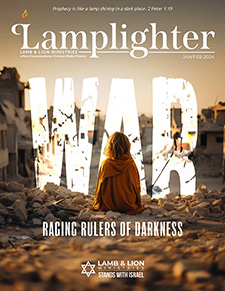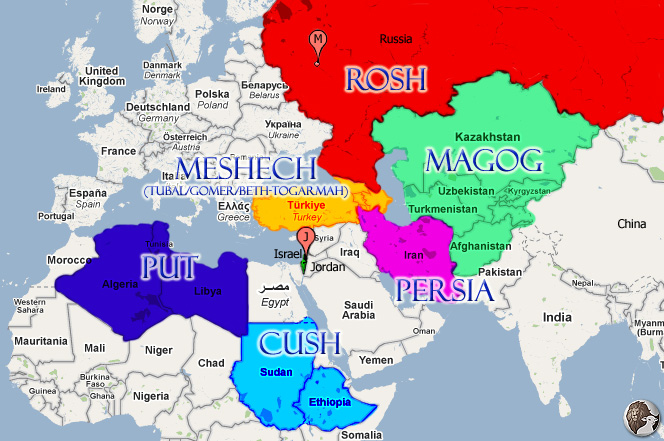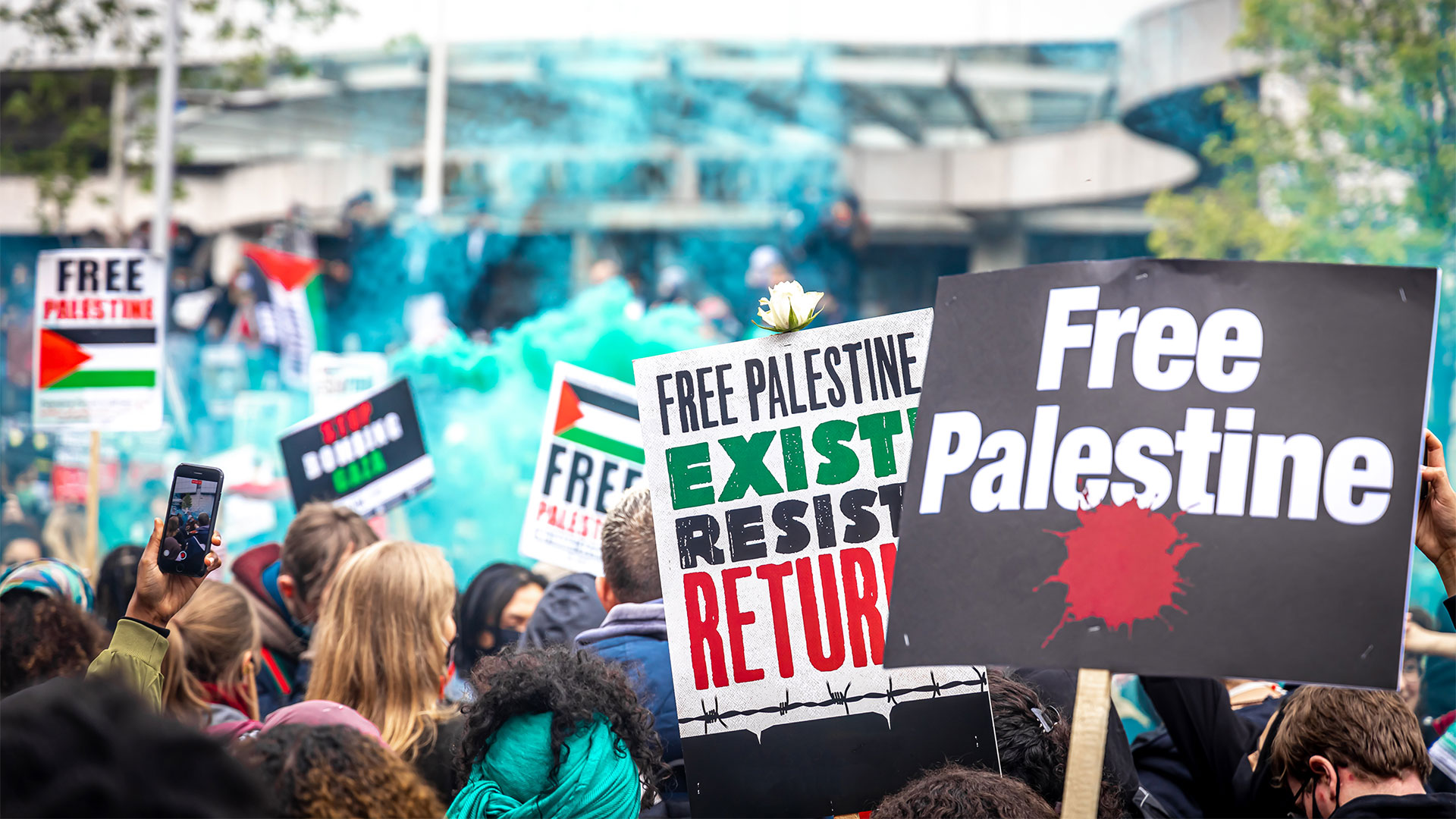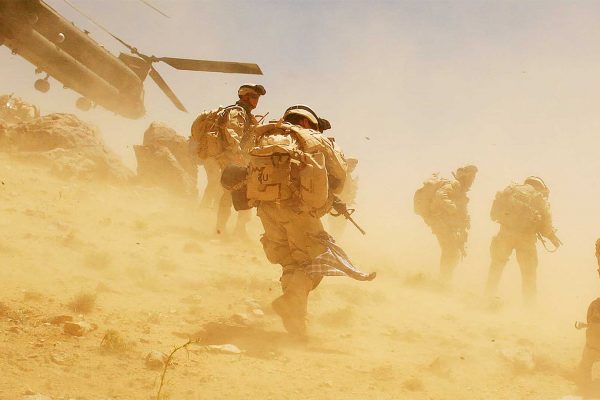Is the Battle Between Israel and Hamas a Prophetic War?
Comparing Two Prophetic Wars

Did you know that Bible prophecy constitutes a whopping 31% of the Bible? God’s overall plan for the ages appears to be rather like a 100-piece puzzle, and so far, He has only provided 75 pieces. We can make out the outline of a picture, but until certain events unfold, which then add another new piece to the puzzle, the picture remains incomplete.
One such “incomplete” prophetic picture concerns the various wars prophesied in the end times, particularly as they relate to the nation of Israel. That’s why many are looking at Israel’s current war with Hamas as a potential prelude to the prophetic war described in Ezekiel chapters 38-39, called the War of Gog and Magog. But, is it? Wouldn’t the Psalm 83 War make more sense with Gaza being involved? Well, let’s see by comparing the two prophetic wars.
The War of Gog and Magog
The War of Gog and Magog foretells a massive attack on the rebirthed nation of Israel by an expansive coalition of nations first described in Genesis 10:2-7. These nations descend from the territories of ancient Rosh (Russia), Magog (the ‘Stan nations), Meshech (including Tubal, Gomer, and Beth-Togarmah now Turkey), Persia (Iran), Cush (Sudan and Ethiopia), and Put (Libya, Algeria, and Tunisia) (Ezekiel 38:2-6). Their leader is called “Gog, the prince of Rosh, Meshech, and Tubal” (Ezekiel 38:2-3, NKJV).
The battlefield is on “the mountains of Israel which had been a continual waste” (Ezekiel 38:8). The purpose of the invasion is to “capture spoil and to seize plunder” and attack the people of Israel (Ezekiel 38:12-16).
The result of such a massive invasion by a seemingly invincible army on an unprotected Israel ends up surprising the invaders and shocking the world. The invading nations are, in truth, being manipulated by God, pulled out of their lands with “hooks into your jaws,” so that those nations feel the Sovereign Lord’s fury (Ezekiel 38:4,18). God drags these specific nations to the “mountains of Israel” to “enter into judgment with him… and on the numerous peoples who are with him,” with “torrential rain, hailstones, fire, and brimstone” (Ezekiel 38:21-22). God explains His ultimate purpose for supernaturally obliterating the invading coalition: “I will magnify Myself, I will manifest Myself as holy, and I will make Myself known in the sight of many nations; and they will know that I am Yahweh” (Ezekiel 38:23).
God’s supernatural victory over the Gog-Magog invaders allows Him to reintroduce Himself to the world and declare in no uncertain terms that Yahweh is personally defending Israel. Should the people of the world doubt, they have only to look on Israel who will “go out and make fires with the weapons and burn them… for seven years” (Ezekiel 39:9).
As for the invaders’ corpses, “for seven months the house of Israel will be burying them in order to cleanse the land” in the newly named “Valley of Hamon Gog” by a newly built “town called Hamonah” (Ezek. 39:11-12,16).
The Psalm 83 War
Now let’s compare the War of Gog and Magog to another war prophesied by the seer (meaning prophet), Asaph—the Psalm 83 War.
Psalm 83 may be read as an imprecatory prayer, meaning that Asaph is calling down judgment and justice upon an enemy, but note that the writer is indeed a prophet. In Psalm 83:6-8, Asaph calls to God to bring His judgment upon all the nations that are listed that have modern-day equivalents to the nations that surround Israel. As eschatologist Bill Salus lists:
- Tents of Edom = Palestinians and southern Jordanians
- Ishmaelites = Saudis (Ishmael was the father of the Arabs)
- Moab = Palestinians and central Jordanians
- Hagrites = Hagarenes or Egyptians
- Gebal = Hezbollah and northern Lebanon
- Ammon = Palestinians and northern Jordan
- Amalek = Arabs of the Sinai Area
- Philistia = Hamas of the Gaza Strip
- Tyre = Hezbollah and southern Lebanon
- Assyria = Syrians and northern Iraq
Full of Holes
Noticeably absent from the list of Gog and Magog nations are those Asaph noted that surround modern-day Israel: Lebanon, Syria, Jordan, Egypt, Gaza, and possibly Iraq and the Arabian peninsula nations. Why are these hostile bordering nations not also actively involved in the War of Gog and Magog? Their absence leaves a giant hole in the Gog-Magog invaders’ map.

Also, the precondition for the Gog-Magog War, as stated three times in Ezekiel (38:8,11,14), is that Gog will not attack until the people of Israel are living at peace “securely” in “unwalled villages.” Does that peaceful precondition exist today? Currently, Hezbollah in Lebanon has hundreds of thousands of missiles pointed at Israel. Terrorist attacks have been happening in Israel almost weekly, culminating in the horrific October 7, 2023, slaughter by Hamas terrorists. And, Israel has built a 400-mile-long wall down the center of the country. Yet another hole.
The Destruction of Damascus
Then there’s another Bible prophecy tied to one of these missing nations—Syria—found in Isaiah 17 and Jeremiah 49. This prophecy describes the destruction of Damascus by Israel in one mere evening:
Behold, Damascus is about to be removed from being a city and will become a fallen ruin… In that day their strong cities will be like forsaken places in the forest, or like branches which they forsook before the sons of Israel; and the land will be a desolation… At evening time, behold, there is terror! Before morning they are no more. (Isaiah 17:1, 9, 14)
How could Israel utterly destroy a city, and in just one evening? A nuclear weapon perhaps? And, where does this attack fit into the prophetic picture?
With these things in mind, Psalm 83 may provide the answer, as the seer Asaph foresaw Israel one day subjugating their hostile surrounding neighbors. If Israel did conquer the countries on their border, that could be the scenario that grants Israel the peaceful precondition Ezekiel describes that precedes the Gog-Magog invasion (Ezekiel 38:11).
Some skeptics claim that this Psalm 83 War must have happened in Israel’s history. Various alliances among Asaph’s list of nations attacked the newly reborn state of Israel during the War of Independence of 1948 and then later during the Six Day War of 1967. But, even though Israel defended itself from these attacks, it has never fully subjugated these lands. If Israel did finally control their enemies’ lands and became “Greater Israel,” that would answer the question as to why the Gog-Magog countries do not include the nations bordering Israel. Rather, Gog’s coalition consists of an outer ring of Islamic nations bent on revenge, most likely because Israel has taken control of their neighbors, just as we are witnessing with Gaza.
Psalm 83 also contains a prayer for the victory of Israel (verses 9-18). The outcome of the war is not stated, but we know from other scriptures that Israel will be victorious. For example, in Zechariah 12:6, we are told that in the end times Israel will be like “a fiery laver among pieces of wood and a fiery torch among sheaves, so they will consume on the right hand and on the left all the surrounding peoples.” Also, God declares in Amos 9:15 that once the Jews are re-established in their land, they will “not again be uprooted from their land which I have given them.”
The Psalm 83 War will result in an overwhelming victory for Israel and further territorial expansion and enhanced natural resources. It will also produce the security spoken of in Ezekiel 38. And, like the Gog-Magog War, it brings the name and fame of God to His enemies: “Let them be ashamed and dismayed forever, and let them be humiliated and perish, that they may know that You alone—Your name is Yahweh—are the Most High over all the earth” (Psalm 83:17-18).
Another Piece of the Puzzle
Psalm 83 may only be a prophetic theory, but it explains missing countries not listed as participating in the Gog-Magog War of Ezekiel 38-39—a gap that has long puzzled students of Bible prophecy. The defeat of Israel’s near-by enemies in the Psalm 83 War could provide the peaceful precondition to the Gog-Magog War. It would also lead the outer ring of Muslim nations to fear Israel’s power in the region and covet its control of even more natural resources than their underwater gas fields, hence Gog’s desire to plunder Israel.
Therefore, I can only conclude that Israel’s war with Hamas is not the prophetic War of Gog and Magog because the combatant nations just do not match. I also cannot claim at this time that the ongoing conflict reflects the prophetic Psalm 83 War either. Now, should the conflict with Hamas escalate into Israel fighting all their hostile bordering neighbors, and particularly should Israel suddenly obliterate Damascus, then yes, we could well be witnessing the runup to the first of these prophetic wars—the Psalm 83 War.
With the Psalm 83 War just around the corner, followed by the War of Gog and Magog, God is about to step back into the limelight to personally destroy Gog’s invading coalition. Such overt divine intervention has not aligned with the way God presents Himself through the Church Age. That must mean then that the return of Jesus Christ is right on the horizon!




